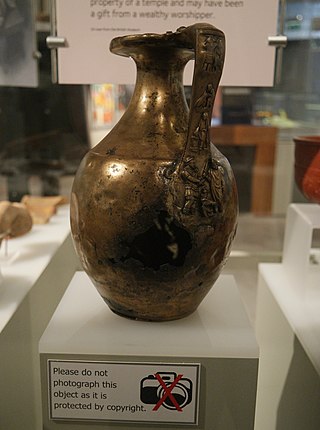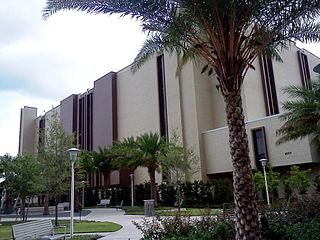
A copyright is a type of intellectual property that gives its owner the exclusive right to copy, distribute, adapt, display, and perform a creative work, usually for a limited time. The creative work may be in a literary, artistic, educational, or musical form. Copyright is intended to protect the original expression of an idea in the form of a creative work, but not the idea itself. A copyright is subject to limitations based on public interest considerations, such as the fair use doctrine in the United States.

Fair use is a doctrine in United States law that permits limited use of copyrighted material without having to first acquire permission from the copyright holder. Fair use is one of the limitations to copyright intended to balance the interests of copyright holders with the public interest in the wider distribution and use of creative works by allowing as a defense to copyright infringement claims certain limited uses that might otherwise be considered infringement. Unlike "fair dealing" rights that exist in most countries that were part of the British Empire in the 20th century, the fair use right is a general exception that applies to all different kinds of uses with all types of works and turns on a flexible proportionality test that examines the purpose of the use, the amount used, and the impact on the market of the original work.
Access © or Access Copyright is the operating name of a Canada Business Corporations Act corporation whose official registration name is The Canadian Copyright Licensing Agency. It is a not-for-profit copyright collective that collects revenues from licensed Canadian businesses, government, schools, libraries and other copyright users for the photocopying of print works and distributes those monies to the rightsholders of those works, such as publishers and authors from Canada and around the world.

A textbook is a book containing a comprehensive compilation of content in a branch of study with the intention of explaining it. Textbooks are produced to meet the needs of educators, usually at educational institutions. Schoolbooks are textbooks and other books used in schools. Today, many textbooks are published in both print and digital formats.

Open educational resources (OER) are teaching, learning, and research materials intentionally created and licensed to be free for the end user to own, share, and in most cases, modify. The term "OER" describes publicly accessible materials and resources for any user to use, re-mix, improve, and redistribute under some licenses. These are designed to reduce accessibility barriers by implementing best practices in teaching and to be adapted for local unique contexts.

The Technology, Education and Copyright Harmonization Act of 2002, known as the TEACH Act, is a section of an Act of the United States Congress. The importance of the TEACH Act stems from the previous copyright laws that allow educators to copy documents or use copyrighted materials in a face-to-face classroom setting. Because of the growth of distance education that does not contain a face-to-face classroom setting revisions to these laws, particularly sections 110(2) and 112(f) of the U.S. Copyright Act, were needed.
Music licensing is the licensed use of copyrighted music. Music licensing is intended to ensure that the owners of copyrights on musical works are compensated for certain uses of their work. A purchaser has limited rights to use the work without a separate agreement.
Campbell v. Acuff-Rose Music, Inc., 510 U.S. 569 (1994), was a United States Supreme Court copyright law case that established that a commercial parody can qualify as fair use. This case established that the fact that money is made by a work does not make it impossible for fair use to apply; it is merely one of the components of a fair use analysis.

A copyfraud is a false copyright claim by an individual or institution with respect to content that is in the public domain. Such claims are unlawful, at least under US and Australian copyright law, because material that is not copyrighted is free for all to use, modify and reproduce. Copyfraud also includes overreaching claims by publishers, museums and others, as where a legitimate copyright owner knowingly, or with constructive knowledge, claims rights beyond what the law allows.
Free content, libre content, libre information, or free information, is any kind of functional work, work of art, or other creative content that meets the definition of a free cultural work, meaning "works or expressions which can be freely studied, applied, copied and/or modified, by anyone, for any purpose."

The Copyright Act of 1976 is a United States copyright law and remains the primary basis of copyright law in the United States, as amended by several later enacted copyright provisions. The Act spells out the basic rights of copyright holders, codified the doctrine of "fair use", and for most new copyrights adopted a unitary term based on the date of the author's death rather than the prior scheme of fixed initial and renewal terms. It became Public Law number 94-553 on October 19, 1976 and went into effect on January 1, 1978.
The copyright law of the United States grants monopoly protection for "original works of authorship". With the stated purpose to promote art and culture, copyright law assigns a set of exclusive rights to authors: to make and sell copies of their works, to create derivative works, and to perform or display their works publicly. These exclusive rights are subject to a time and generally expire 70 years after the author's death or 95 years after publication. In the United States, works published before January 1, 1928, are in the public domain.
Copyright Clearance Center (CCC) is a U.S. company based in Danvers, Massachusetts,, that provides collective copyright licensing services for corporate and academic users of copyrighted materials. CCC procures agreements with rightsholders, primarily academic publishers, and then acts as their agent in arranging collective licensing for institutions and one-time licensing for document delivery services, coursepacks, and other access and uses of texts.

Cambridge University Press et al. v. Patton et al., 1:2008cv01425, was a case in the United States District Court for the Northern District of Georgia in which three publishers, Cambridge University Press, SAGE Publications, and Oxford University Press, initially filed suit in 2008 against Georgia State University for copyright infringement.

Bill Graham Archives v. Dorling Kindersley, Ltd., 448 F.3d 605, is a 2006 case of the United States Court of Appeals for the Second Circuit regarding fair use of images in a pictorial history text. It affirmed the United States District Court for the Southern District of New York, which held at trial that the publisher's use of several images of past Grateful Dead concert posters and tickets, reduced considerably, in a timeline of the band's history was a sufficiently transformative use.

Authors Guild v. HathiTrust, 755 F.3d 87, is a United States copyright decision finding search and accessibility uses of digitized books to be fair use.

Alberta (Education) v Canadian Copyright Licensing Agency , 2012 SCC 37, is a Supreme Court of Canada case that considered whether the photocopying of textbook excerpts by teachers, on their own initiative, to distribute to students as part of course materials is fair dealing pursuant to the provisions of the Copyright Act. The Supreme Court, in a 5/4 split, concluded that the Copyright Board made several errors in its analysis of the "fairness factors". Thus, it allowed the appeal and remitted the matter back to the Copyright Board for reconsideration.

Associated Press v. Meltwater U.S. Holdings, Inc. was a district court case in which the Associated Press (AP) brought suit against Meltwater Group in U.S. (Meltwater) for clipping and sharing news items under copyright infringement and "hot news" misappropriation under New York common law. In a cross-motion for summary judgement, Meltwater argued they were not infringing under the requirements of fair use. Meltwater claimed that their service was transformative and therefore non-infringing on copyright. The court held that Meltwater's copying was not protected under the fair use doctrine and it was infringing on AP's copyright.

American Geophysical Union v. Texaco, Inc., 60 F.3d 913, was a 1995 U.S. copyright case holding that a private, for-profit corporate library could not rely on fair use in systematically making copies of articles in academic journals for its employees. A divided panel of the U.S. Court of Appeals for the Second Circuit affirmed a ruling by Judge Pierre Leval of the U.S. District Court for the Southern District of New York in favor of the academic publishers who had filed the lawsuit. The case was the first heard by the Second Circuit to seriously consider the question of transformative use, a concept Leval had introduced, in evaluating a fair use claim.

The University of South Florida Tampa Library is the main research library for the University of South Florida. Housing over 1.3 million books, academic journals and electronic resources, including 52,000 e-journal subscriptions, 443,000 e-books, and over 800 databases, the library has more than 2 million visitors each year. The library offers tutoring and writing services, laptops, a career resource center, and course reserves. The facility houses several special and digital collections, including literature, oral histories, photographs, artifacts, and the university archives. The current Dean of USF Libraries is Todd Chavez.